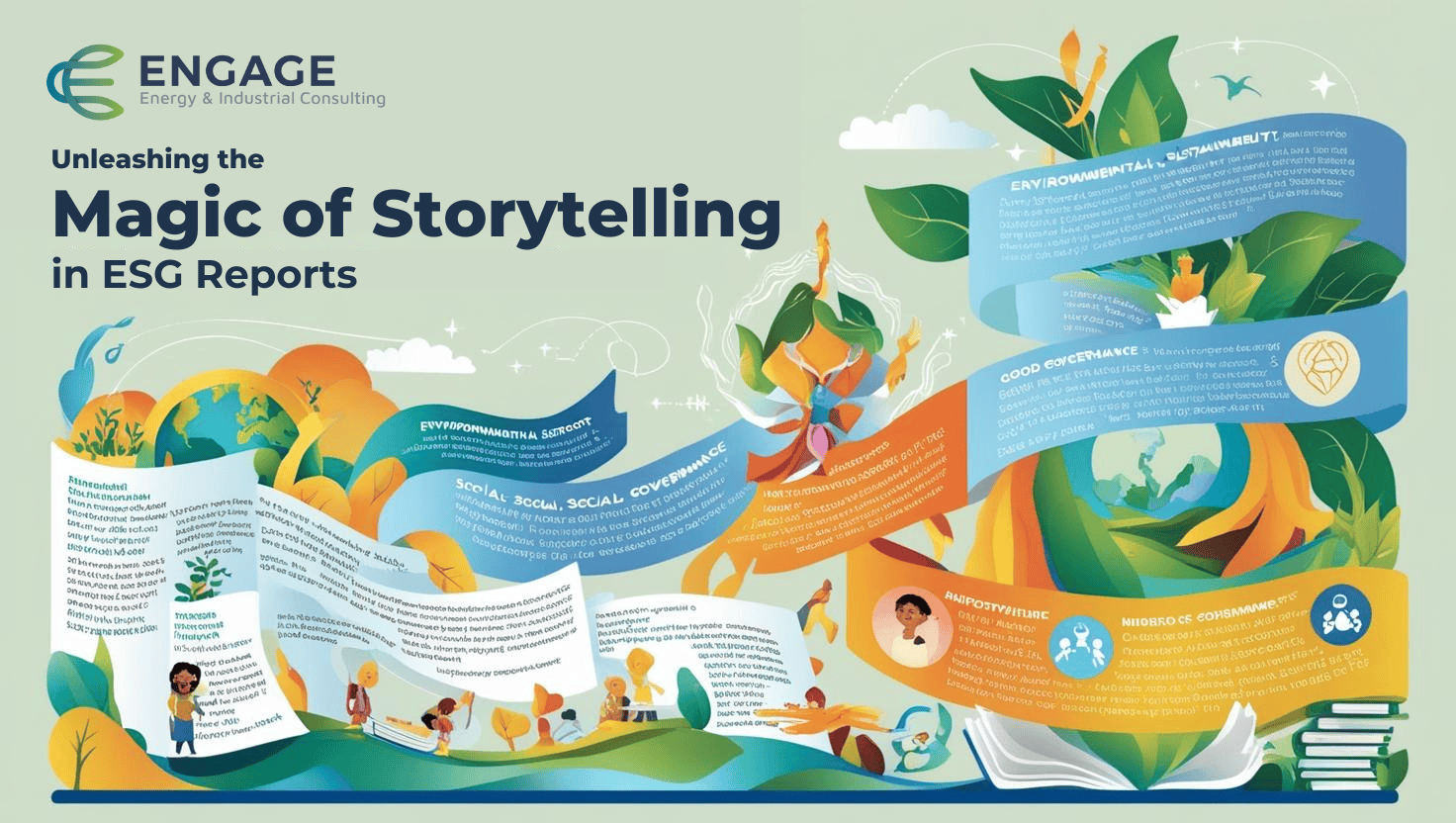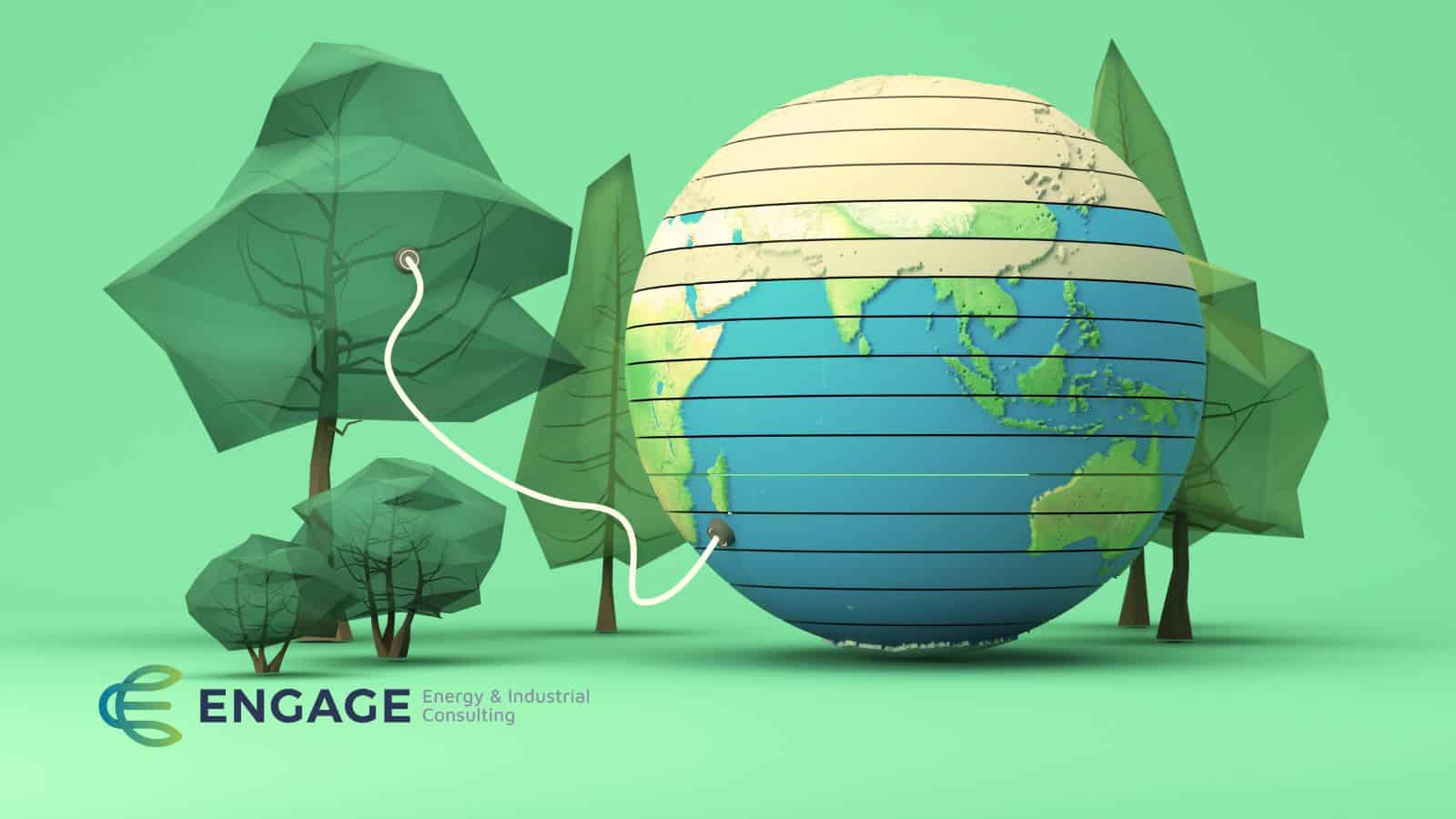Businesses across industries are re-evaluating their practices to align with more green technologies to obtain sustainability. Today, environmental sustainability is not just a choice but a necessity. This shift has transformed how consulting firms operate, driving them to incorporate innovative green technologies into their service offerings. With these advances, our clients achieve sustainability goals, reduce costs, and comply with environmental regulations, positioning consulting firms as pivotal players in the green transition.
Today, global investments in low-carbon technologies surged by 17% in 2023 according to Statista. Low-carbon technology has now reached a record $1.8 trillion globally. This figure underscores the rapid expansion of the cleantech sector as companies prioritize sustainability in response to climate change and energy security issues. Here are some of the ways that Engage Energy & Industrial Consulting can help your business with green technology advancements.
The Role of Green Technology in Environmental Consulting
Consulting firms today are not just advisors; they are strategic partners that leverage advanced tools to ensure client success in sustainability efforts. In North America along green technology adoption with a 38.7% market share in 2023, driven by regulatory support and technological innovations according to Grand View Research. In Europe, the impact of investments in green technology is expected to attract upwards of 90 billion Euros by 2030. Why is green technology so important to our collective global future? Here are four key points to watch:
- Optimize resource use by utilizing data-driven insights.
- Enhance operational efficiency for clients, cutting down waste and energy consumption.
- Ensure regulatory compliance, helping clients navigate complex environmental laws.
- Demonstrate leadership in corporate social responsibility.
Green Technologies Transforming Environmental Consulting
A. Artificial Intelligence (AI) for Sustainability Analytics
AI has emerged as a game-changer for sustainability in consulting. By harnessing AI-driven tools, consultants can analyze vast amounts of data to identify patterns in energy usage, waste management, and carbon footprint reduction.
“AI can optimize renewable energy systems and assess climate risks, making significant contributions to sustainability efforts. However, these benefits hinge on responsible application and transparency. Companies that integrate AI with sustainability initiatives often see higher performance, surpassing competitors by up to threefold and attracting talent more effectively. Nonetheless, ensuring these outcomes requires a balance between innovation and responsible practices, particularly in light of AI’s substantial energy demands.”
– Responsible Artificial Intelligence Institute
- Applications: AI can forecast energy needs, optimize supply chains for lower emissions, and develop predictive maintenance schedules that save resources.
- Case Study: A leading consulting firm implemented an AI platform to help a manufacturing company reduce its carbon emissions by 15% within a year by optimizing its production processes and supply chain.
Internet of Things (IoT) for Energy Management
The IoT connects various devices and systems, allowing real-time monitoring and automated adjustments to reduce energy consumption. Consulting firms are leveraging this technology to offer clients actionable solutions in energy management.
Example #1 From IBM:
IoT integrates with building management systems to automate energy-saving measures, such as adjusting HVAC (heating, ventilation, and air conditioning) systems, switching off unused equipment, or modulating lighting based on occupancy and daylight availability. This automated control not only conserves energy but also extends the lifespan of equipment by reducing unnecessary wear.
Example #2 from Green.Org and the World Economic Forum:
IoT can be used for predictive maintenance. By collecting data on the performance and condition of equipment, IoT systems can anticipate potential malfunctions or inefficiencies. For example, a smart grid or factory could leverage IoT to predict when an air conditioning unit is likely to underperform, enabling timely service that maintains energy efficiency.
Blockchain for Supply Chain Transparency
Transparency is key in proving that sustainability practices are adhered to throughout the supply chain. Blockchain technology offers a secure, tamper-proof way to trace product origins, ensuring that suppliers comply with green standards.
- Consulting Applications: Projects that involve eco-certifications or the ethical sourcing of materials.
- Real-World Example: A consulting team implemented a blockchain system for a multinational company to verify that all raw materials were sourced sustainably, boosting consumer confidence and brand credibility.
Green Data Centers and Cloud Services

The need for eco-friendly data solutions is on the rise. Traditional data centers consume significant energy, but green data centers and cloud services optimized for lower energy use are becoming more common.
- Green Consulting Services: Consulting firms now assist businesses in migrating to data centers powered by renewable energy or optimized for minimal power usage.
- Benefits: Reduced operational costs, compliance with green regulations, and enhanced company reputation.
Challenges in Implementing Green Technologies
One of the primary challenges is policy uncertainty. Governments play a crucial role in promoting green technology through incentives, subsidies, and supportive regulations. When global political priorities shift, these supportive measures can be altered or rolled back, creating uncertainty for businesses and investors.
Economic pressures are often a culprit of shifts in political focus toward short-term economic growth. Often, green technology can be tabled at the notion that putting off potential expense of sustainable practices will save on the short-term gains for holding off on that investment. Political leaders facing economic downturns or rising energy prices might prioritize policies that support traditional energy sources for economic stability, delaying the transition to green technology.
For instance, the threat of a new Trump Administration illustrated how a political shift in policy could undermine the international efforts to combat climate change. Impacts that reach far beyond the U.S. border into emerging nations.
The Future of Consulting with Green Technology
The future points towards a heightened emphasis on climate tech, carbon audits, and strategic planning that prioritizes environmental impact. Consulting models will continue to evolve with the development of new technologies such as carbon capture and AI-driven lifecycle assessments. Firms that position themselves as sustainability leaders will not only adapt but thrive in this evolving landscape. Today, “three-quarters (76%) of surveyed executives agree that sustainability is central to their business, but nearly half (47%) say they struggle to fund sustainability investments.” –IBM
A Case for Hiring a Consultant with Experience in Green Technology.
Initiative on a global level is leveraging green technologies at a rapid pace. These green initiatives are reshaping the consulting industry, providing firms with the tools needed to drive sustainability and innovation. Tech changes rapidly, improving the capabilities of green initiatives by learning By adopting these technologies, consulting firms not only help their clients meet pressing environmental standards but also carve out a significant role for themselves as change-makers in the business world.
Embracing this wave of eco-friendly innovation is essential for consulting firms aiming to remain competitive and relevant in the future. Contact Us today to learn more about our green technology strategies for the future.





